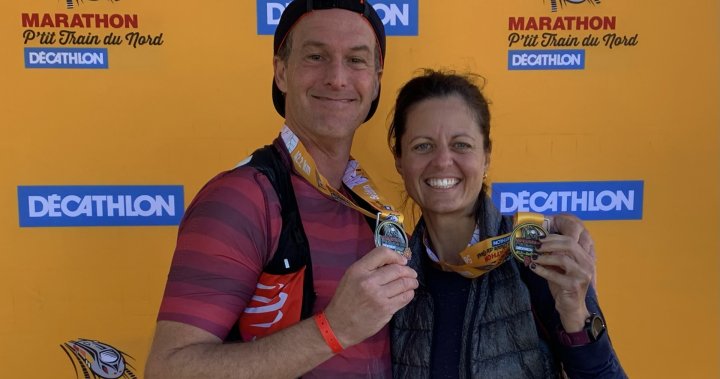Veronique Tremblay, the widow of a Quebec man, Jean-François Alain, who died suddenly during a triathlon in the United States, is seeking answers as to how her healthy 49-year-old husband could pass away so unexpectedly. Alain, an experienced runner, was in peak physical condition and had enrolled in the IRONMAN 70.3 Texas triathlon as preparation for a larger event to celebrate his upcoming 50th birthday. However, tragedy struck when he experienced cardiac discomfort during the swim portion of the competition and ultimately passed away, leaving behind his wife and two sons. Tremblay is adamant about seeking answers about the circumstances leading to her husband’s death, as she struggles to come to terms with the sudden loss of her partner of 29 years.
Following her husband’s death, Tremblay hired a lawyer to help her determine the events that led to Alain’s passing. The lawyer, Will Moye, stressed the importance of understanding what occurred during the triathlon and emphasized that events of such a magnitude should have adequate emergency response procedures in place. Ironman, the organizer of the triathlon, acknowledged that a distressed athlete required medical attention during the swim and was promptly attended to before being transferred to a nearby hospital where they eventually passed away. Tremblay is particularly concerned about the timing of the rescue and is awaiting further details about the circumstances surrounding her husband’s death.
Dr. Richard Moon, an anesthesiologist, pulmonologist, and specialist in diving and hyperbaric medicine at Duke University, co-authored a study showing that some individuals may develop a condition known as swimming-induced pulmonary edema while swimming. This condition, which involves the lungs filling with fluid and impairing breathing, is more common among older individuals, such as triathletes in their 40s and 50s. Dr. Moon explained that pre-existing conditions such as high blood pressure or silent coronary artery diseases may predispose individuals to this condition. Tremblay is hopeful that by obtaining written answers from the organizers of the triathlon, accountability can be established to prevent similar tragedies in the future.
Tremblay remains perplexed by the sudden deterioration of her husband’s health during the triathlon, especially since he had recently received a clean bill of health from his doctor. She is holding on to memories of their shared adventures, like skiing and hiking trips, while seeking closure regarding Alain’s untimely passing. As she mourns the loss of her husband, Tremblay is determined to ensure that the organizers of the triathlon are transparent about the events leading up to his death. Her goal is to prevent future tragedies and hold those responsible accountable to prevent other families from experiencing the same devastating loss that she has endured.
The loss of Jean-François Alain during the triathlon has left Tremblay and her two sons grappling with the sudden absence of their beloved husband and father. Tremblay recalls the devastating phone call she received, informing her of her husband’s critical condition during the competition and the urgent need to travel to Texas. Despite her efforts to understand the circumstances surrounding Alain’s death, Tremblay is haunted by the fact that their two sons did not have the opportunity to say goodbye to their father. Moving forward, she remains committed to seeking answers and accountability from the organizers of the triathlon to prevent similar tragedies and ensure that no other family has to endure the pain and loss that she and her sons are facing.


